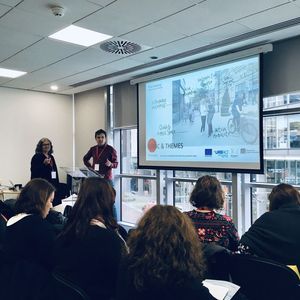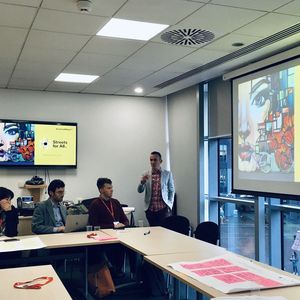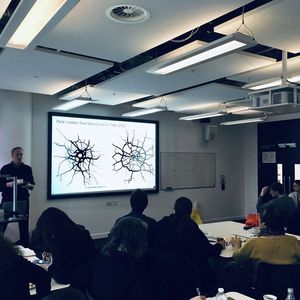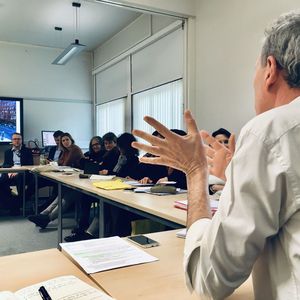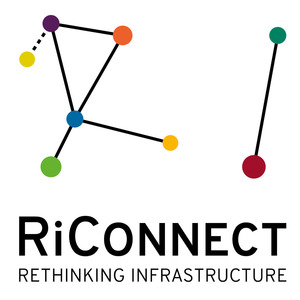RiConnect Project, URBACT
| Subject: Infrastructures, International Relations
The aim of the new network is to rethink, transform and integrate mobility infrastructure

On 30th and 31st January, the final sessions corresponding to stage 1 of the RiConnect Project, part of the European programme URBACT, led by the AMB, took place in Manchester. Within this context, Transport for Greater Manchester (TfGM) hosted the meeting in which representatives from the network's 8 metropolitan areas defined the issues that will be addressed by the network and the 8 integrated action plans that will be developed in stage two.
The RiConnect Network, under the motto "Rethinking infrastructures", will focus on issues related to mobility infrastructure. These include flow reorganisation, infrastructure integration, urban fabric planning and the incorporation of ecosystem functions.
Reorganising flows: promoting sustainable means of transport.
The space available to move around the city is limited and a substantial portion of it is currently intended for private vehicles. One of the aims of this project is to reorganise flows and distribute the space more equally, promoting more sustainable means of transport that lend greater importance to flows of people and efficient mobility.
Integrating infrastructure: redesigning their immediate surroundings.
Mobility infrastructure has largely been set up in accordance with vehicle requirements, often without regard for the territory in which it has been deployed, resulting in fragmentation, discontinuity and areas of low urban quality. It is therefore necessary to integrate infrastructure by redesigning the areas around these systems and recovering cross connections, without forgetting the legacy this infrastructure has in the collective imagination.
Planning fabrics: compact cities for the people.
The network is determined to rethink infrastructure and develop compact cities in which the distance between people, services, facilities, open spaces, workplaces and public transport is minimal. The strategies will focus on reinforcing easily accessible areas and capitalising on the change in infrastructure to unlock new developments and areas of urban regeneration.
Incorporating ecosystem functions: returning infrastructure to nature and improving the environment.
Infrastructure fragments the territory, and the numerous vehicles that use it generate pollution. Nonetheless, infrastructure also represents a fantastic opportunity. Some of the new demands that may be addressed in the area of infrastructure include land restoration in order to improve the environment and the assumption of metabolic functions.
In light of these challenges, the network strives to delve deeper into these issues from different perspectives in their integrated action plans. The exchange of knowledge must serve to meet the challenges of the 21st century through an integrated, cross-cutting, participative and coordinated approach.
Image gallery
Related documents
Related links
Related cooperation projects
Where














































